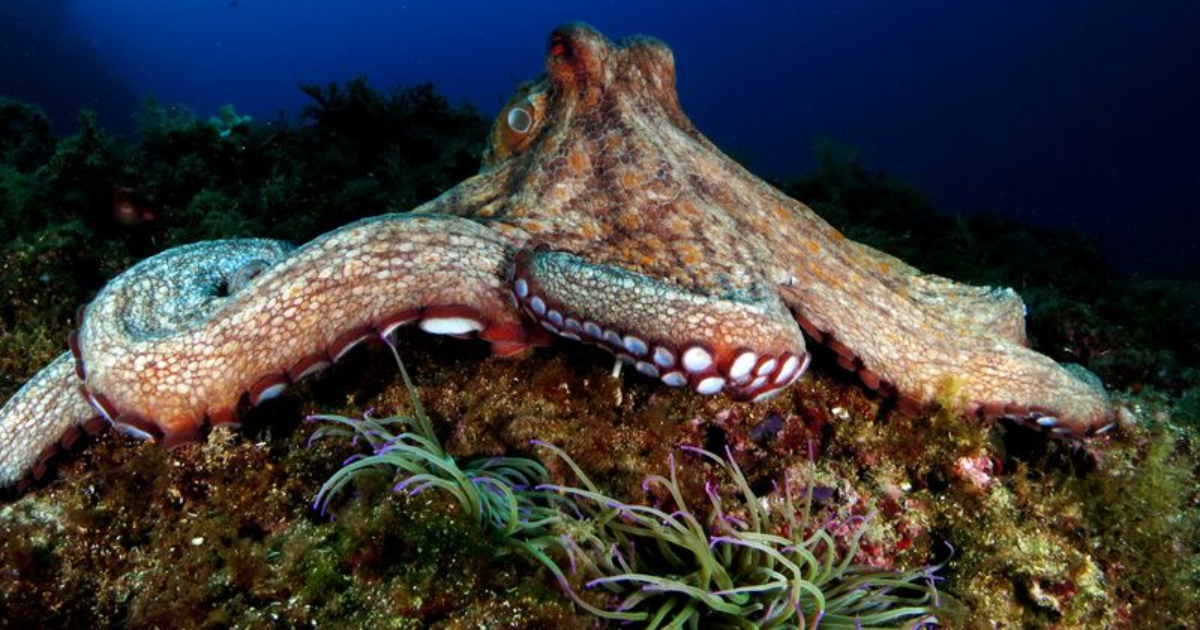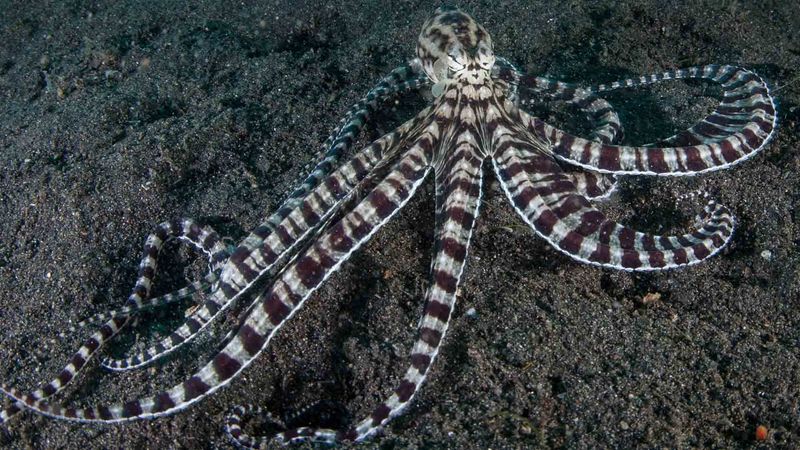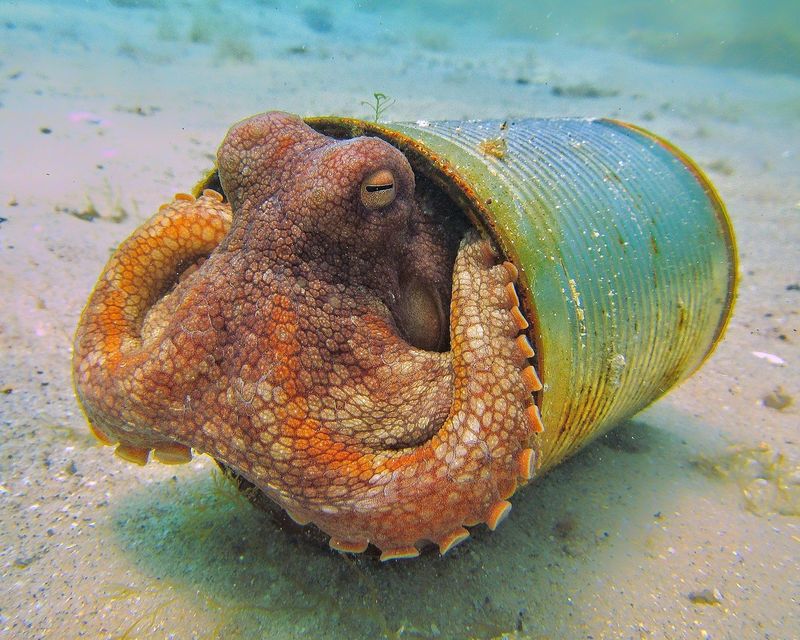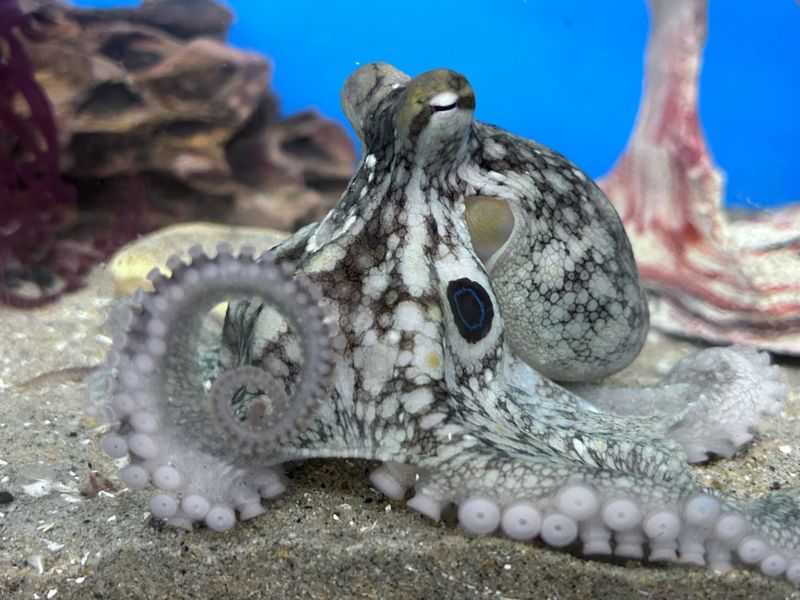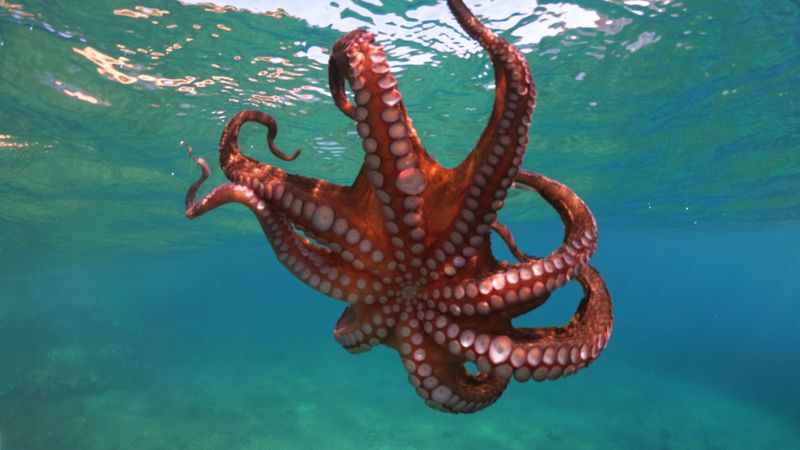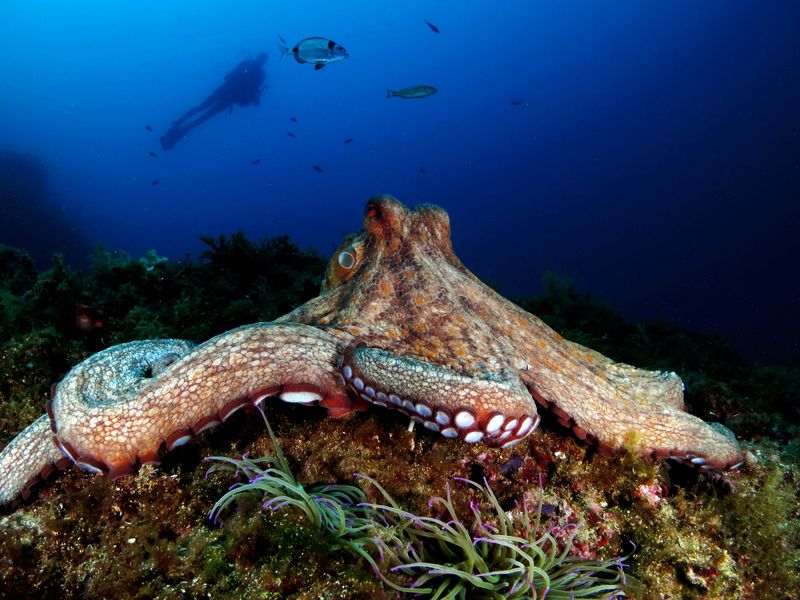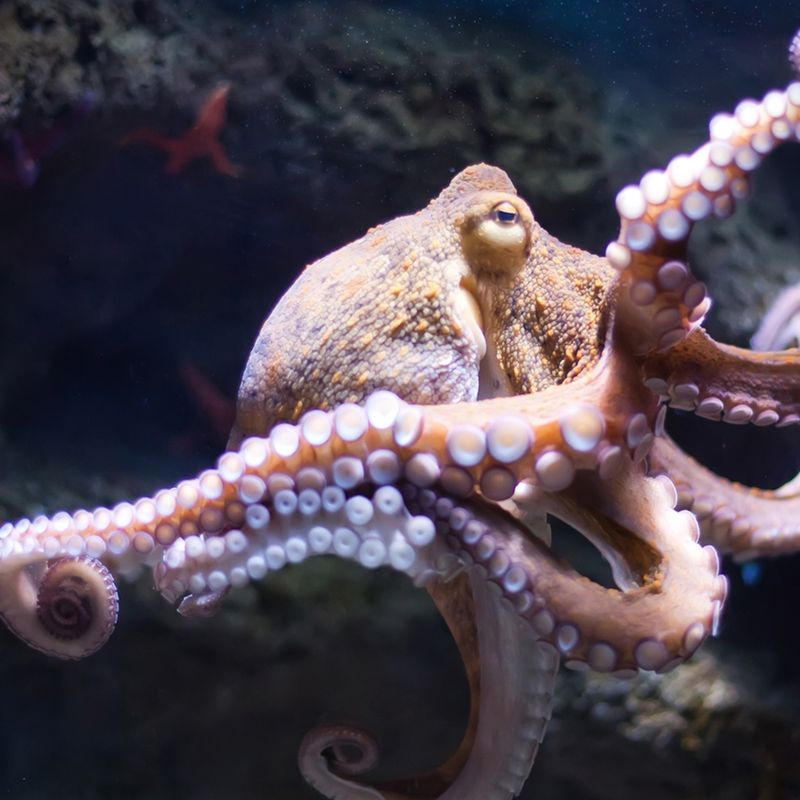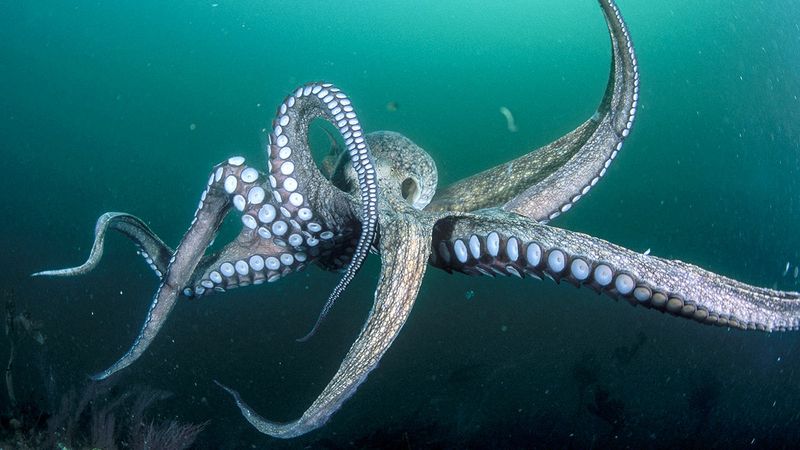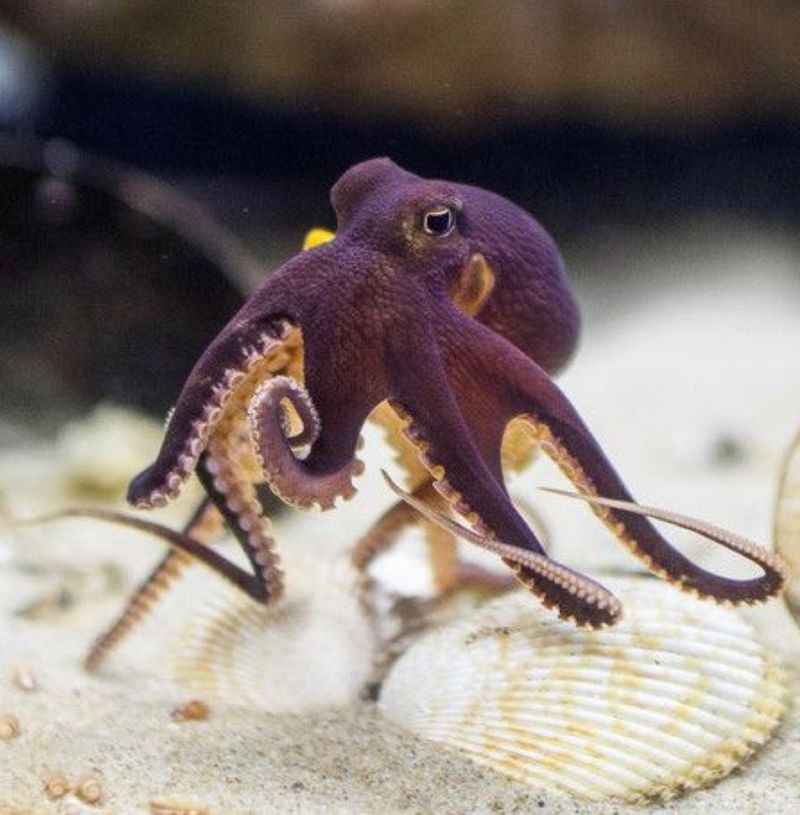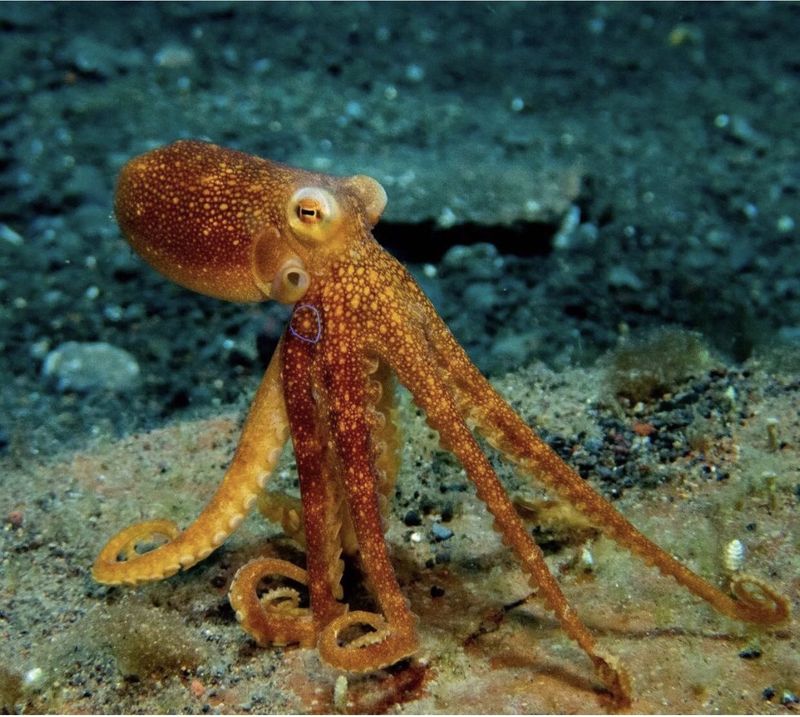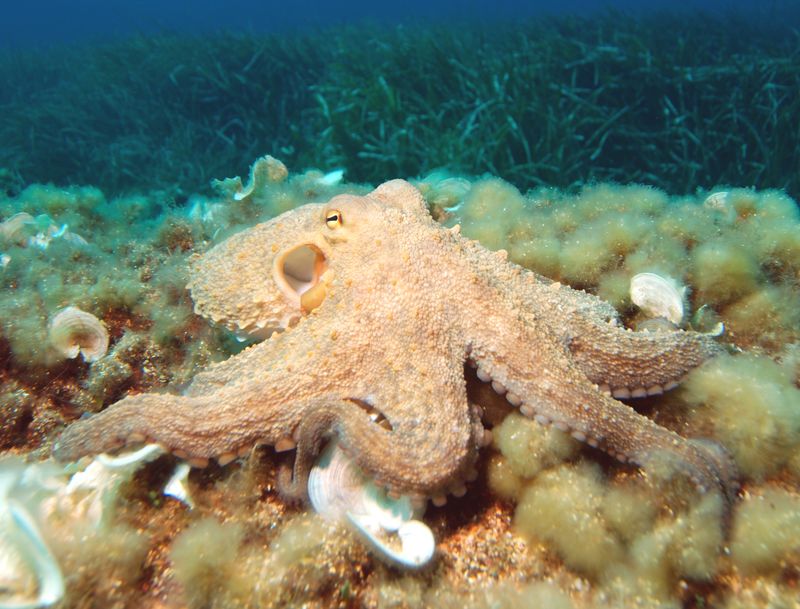📖 Table of Content:
When it comes to intelligence in the animal kingdom, few creatures are as fascinating—or as mysterious—as the octopus. These remarkable sea dwellers are far more than just eight-legged wonders of the ocean.
From their ability to solve complex puzzles to their mastery of camouflage, octopuses consistently astound scientists and animal lovers alike.
In this article, we’ll dive deep into the extraordinary world of these clever cephalopods, uncovering 10 incredible facts that highlight their genius.
10. Master of Disguise
Octopuses are renowned for their incredible ability to camouflage. They can change both the color and texture of their skin to blend seamlessly into their surroundings. This skill not only helps them evade predators but also assists in sneaking up on unsuspecting prey.
Their skin contains specialized cells called chromatophores, which allow them to alter their appearance in virtually an instant. This ability to mimic surroundings is not just a passive defense mechanism but a sophisticated survival strategy.
Octopuses have been observed using this talent to mimic other marine animals, further confusing potential threats. This mastery of disguise showcases not only their physical adaptability but also a keen sense of situational awareness.
9. Tool Use and Problem Solving
Octopuses demonstrate remarkable problem-solving abilities, often regarded as a sign of intelligence in animals. One famous behavior is their use of tools, such as carrying coconut shells or other objects to use as mobile shelters.
This clever strategy not only provides protection but also illustrates their ability to plan and use available resources creatively. In captivity, octopuses have been observed solving complex puzzles and escaping from seemingly secure enclosures, further highlighting their cognitive capabilities.
This combination of curiosity and adaptability allows them to navigate and manipulate their environment with astounding precision. When faced with a challenge, octopuses can think ahead, evaluate their options, and execute a plan.
8. Complex Nervous System
The nervous system of an octopus is fascinatingly complex, with most of its neurons located not in the brain but in its arms. This unique arrangement allows each arm to operate with a degree of autonomy, enabling sophisticated multitasking abilities.
Each limb can taste, touch, and even make decisions independently, showcasing a decentralized form of intelligence. This allows octopuses to perform tasks like unscrewing jar lids or opening containers with remarkable dexterity.
Their nervous system also enables them to process information rapidly, adapting to changing environments efficiently. This brain distribution highlights an unconventional form of intelligence, separate from the centralized systems found in most animals.
7. Escape Artists of the Sea
Octopuses are well-known for their extraordinary ability to escape confinement. Their soft, boneless bodies can squeeze through incredibly tight spaces, allowing them to slip away from predators or explore new territories.
This flexibility is complemented by their strategic thinking and problem-solving skills, making them the ultimate escape artists of the sea. In aquariums, they have been observed escaping through seemingly impossible gaps, much to the amazement of scientists and visitors alike.
This combination of physical adaptability and cognitive prowess enables them to navigate their environment with ingenuity and precision.
6. Incredible Regeneration
Octopuses possess the incredible ability to regenerate lost limbs, an adaptation that serves both as a defense mechanism and a survival tool. When threatened, they can sacrifice an arm to distract predators, then regrow it over time without permanent damage.
This regenerative ability is not only a testament to their resilience but also a fascinating biological process. The regrowth of limbs involves highly coordinated cellular processes, showcasing their advanced regenerative capabilities.
This ability to heal and regenerate is further evidence of their remarkable evolutionary adaptability. By efficiently replacing lost limbs, octopuses maintain their survival skills without significant detriment, allowing them to continue thriving in their often-dangerous environments.
5. Social Intelligence and Interaction
Although traditionally considered solitary creatures, recent studies have shown that octopuses exhibit complex social behaviors.
They communicate through a series of color changes, body postures, and movements, demonstrating an ability to interact with one another. This social intelligence reveals a more nuanced understanding of their cognitive abilities.
In some species, octopuses have been observed cooperating in hunting and even forming social hierarchies, challenging the notion of their solitary nature. These interactions highlight their capability to understand and respond to social cues, a trait often associated with higher intelligence.
4. Mimicry and Deception
Octopuses possess an extraordinary talent for mimicry, using this ability to deceive predators and prey alike. The mimic octopus, in particular, can impersonate a range of animals, including lionfish, flatfish, and sea snakes.
This remarkable skill involves not only changing colors and textures but also altering their shape and movements to resemble other species. This level of mimicry requires both intelligence and flexibility, allowing them to avoid detection or lure prey into a false sense of security.
Such deceptive tactics are a clear indication of their sophisticated cognitive abilities. By observing and replicating the behaviors and appearances of other animals, octopuses demonstrate a high level of mental adaptability.
3. Learning and Memory
Octopuses exhibit impressive learning and memory capabilities, traits that distinguish them as intelligent creatures. Studies have shown that they can learn by observation, a rare skill in the animal kingdom.
Through experiments, octopuses have demonstrated the ability to remember solutions to problems and apply those solutions in new situations. This capacity for learning extends to recognizing individual humans, differentiating between those they like or dislike.
Their ability to learn from experiences and adapt to new challenges highlights their cognitive complexity. This memory retention is essential for their survival, enabling them to navigate and thrive in diverse environments.
2. Unique Reproductive Strategies
Octopuses have unique and intriguing reproductive strategies that reflect their intelligence and adaptability. The female octopus takes extraordinary care of her eggs, often dedicating her life to their protection.
She meticulously tends to them, ensuring they receive enough oxygen by gently blowing currents over them. Once the eggs hatch, the mother’s job is done, as she typically dies shortly afterward, leaving her offspring to fend for themselves.
This selfless dedication highlights both an instinctual drive and a level of parental investment that is rare among invertebrates. The intricate care process reveals a nuanced understanding of their reproductive role.
1. Environmental Awareness
Octopuses display a remarkable environmental awareness, exhibiting behaviors that suggest a deep understanding of their surroundings. They can adapt quickly to changes in their environment, from temperature shifts to introducing new predators.
This situational awareness is evident in their ability to manipulate objects and navigate complex underwater landscapes. Their keen sensory abilities allow them to detect subtle changes in their habitat, from water currents to chemical signals, enabling them to respond accordingly.
This heightened environmental awareness is essential for their survival, allowing them to avoid danger and capitalize on opportunities.
